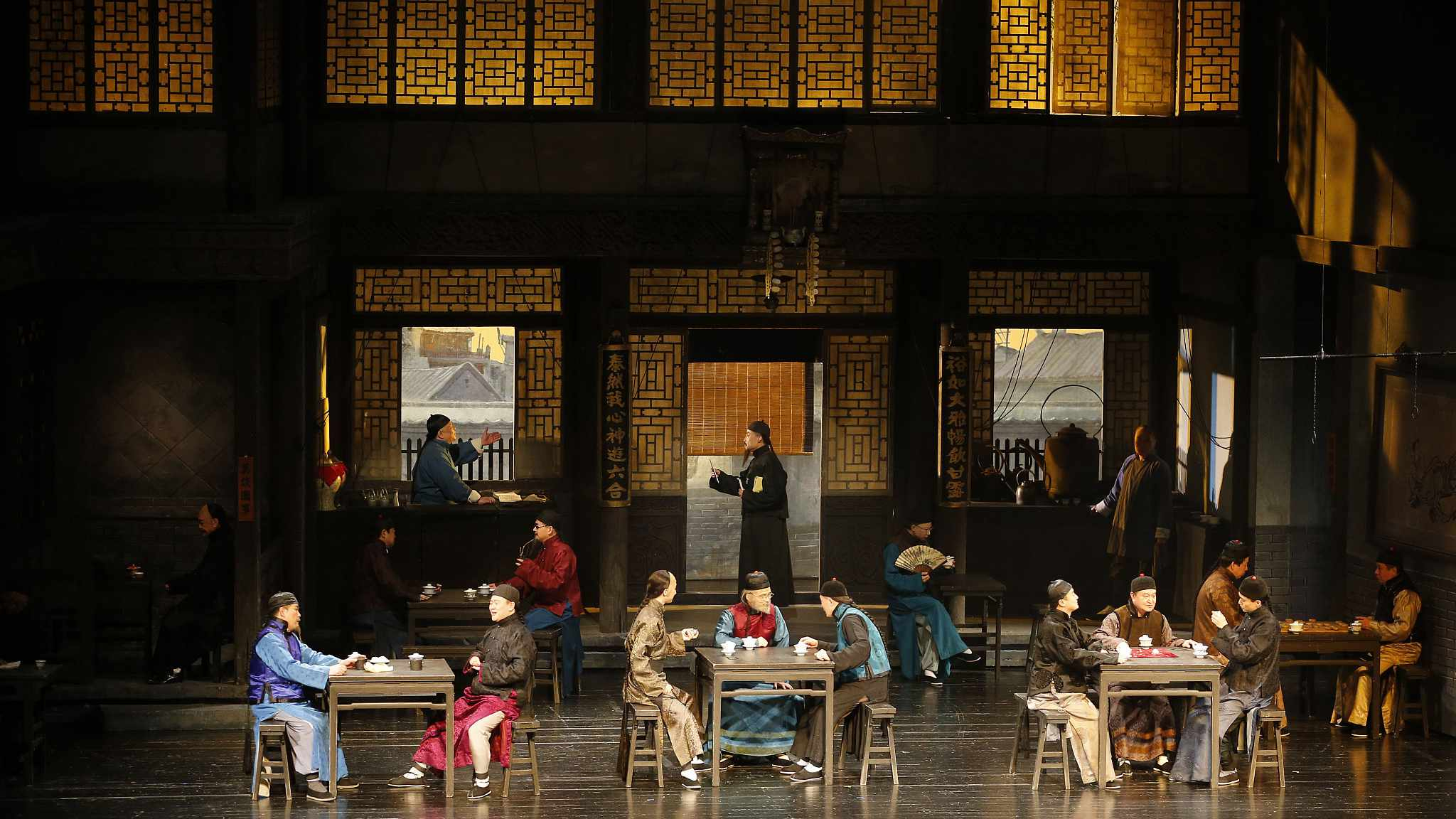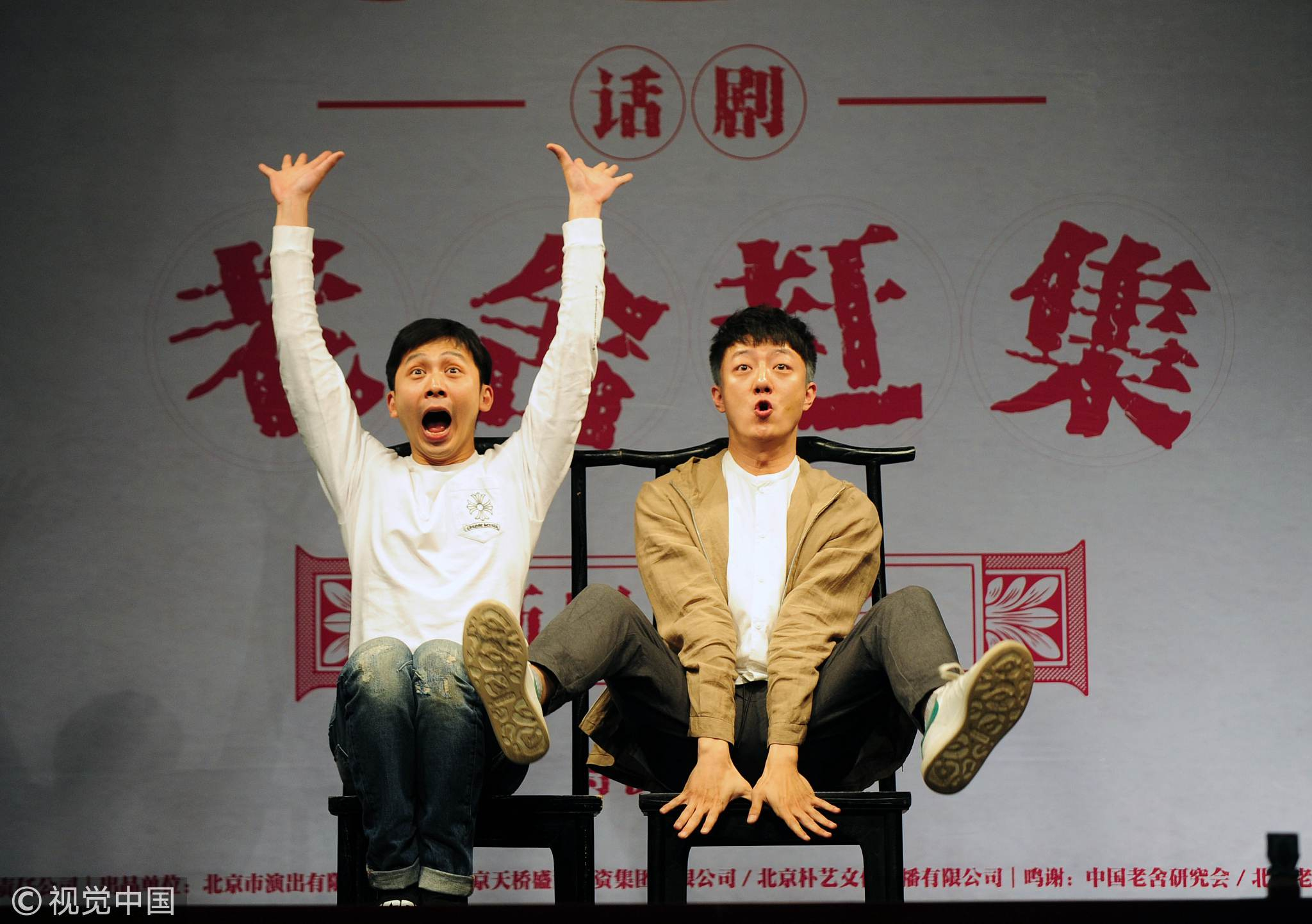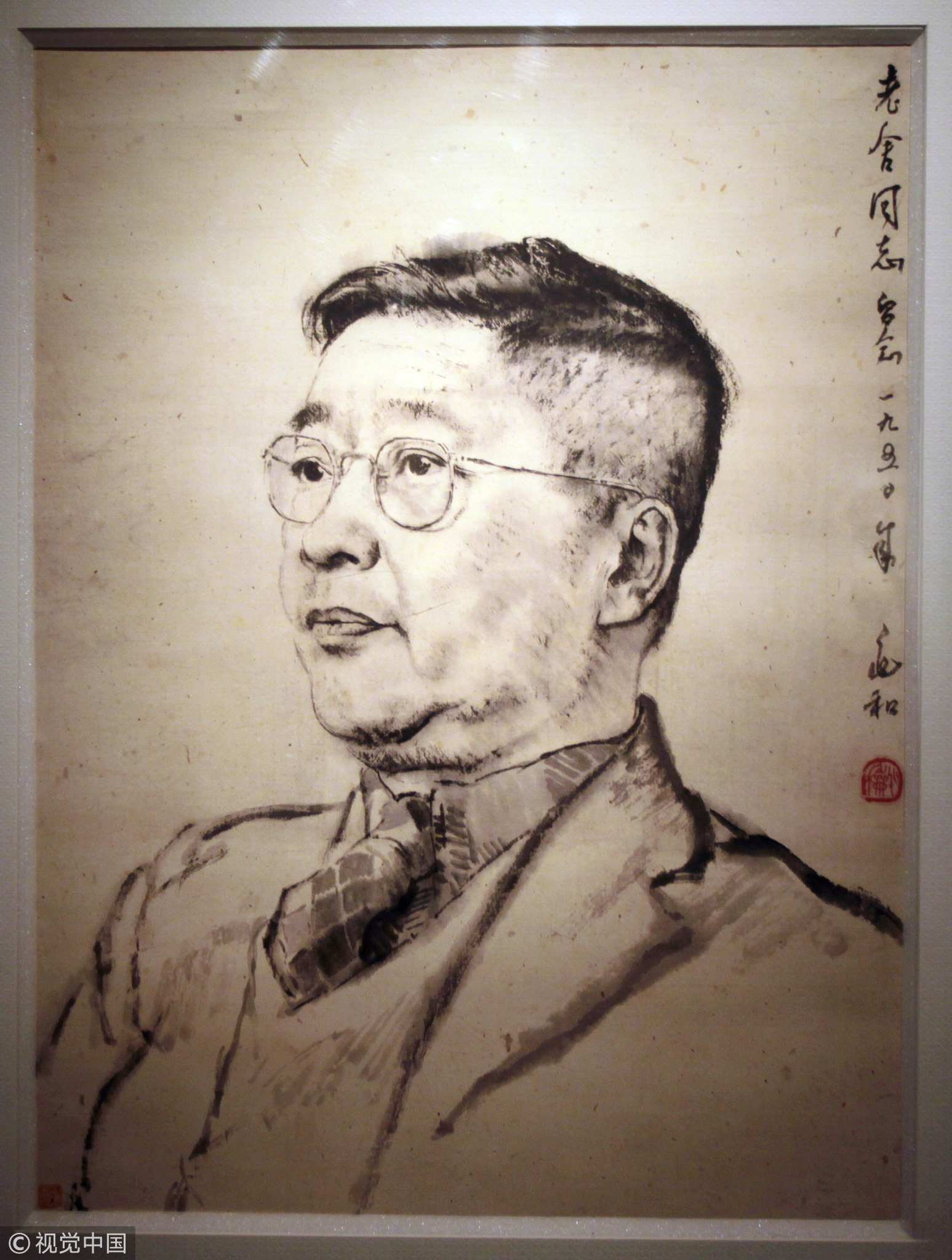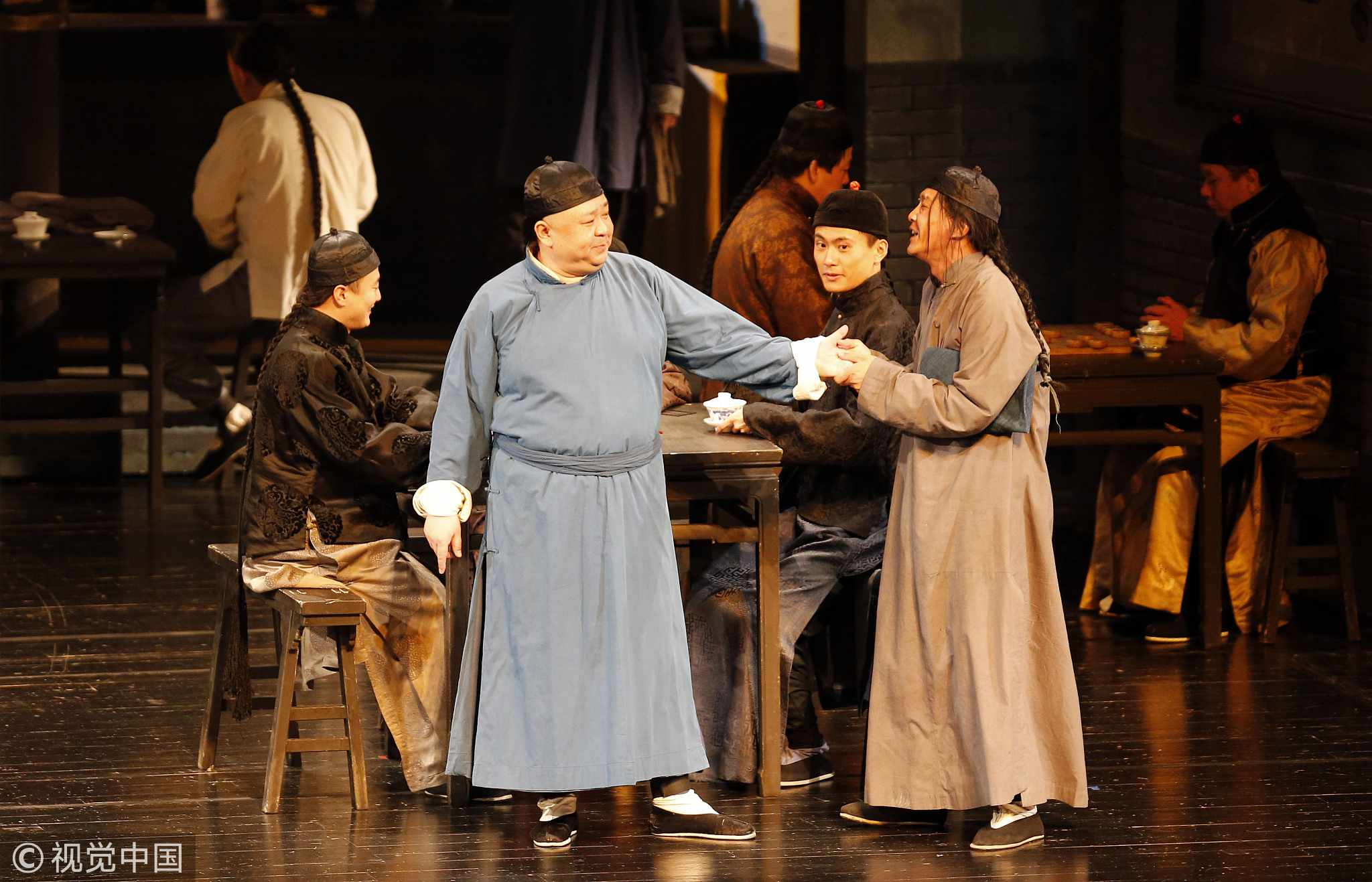
Theater
15:53, 14-Aug-2018
Lao She International Theater Festival to kick off in Beijing
Updated
15:29, 17-Aug-2018
CGTN

Theater enthusiasts in Beijing are looking forward to a bright autumn, as the second Lao She International Theater Festival will kick off next month, bringing quite a number of domestic and international performances to the stage.
Expected to open on September 7, the festival will last for 50 days until October 27, showcasing 11 plays from China, France, Russia and Poland.
The festival, named after celebrated Chinese novelist and playwright Lao She, was launched last year. It is jointly organized by Beijing Artists Management Corporation and Beijing Tianqiao Performance Arts Center.

A poster of “Lao She Going to the Fair”. /VCG Photo
A poster of “Lao She Going to the Fair”. /VCG Photo
As one of the most prominent figures of 20th-century Chinese literature, many of Lao She’s works have been repeatedly adapted into various kinds of artistic forms, including plays, TV dramas and movies.
His play “Teahouse” remains one of the most welcomed plays of the Beijing People’s Art Theater. Whenever the play is staged, people line up outside the ticket office, just to watch it once more.
Lao She is good at depicting the daily lives of the grassroots-level people, especially those living in old downtown Beijing, featuring the dialect known as the “Beijing dialect”, with some special slang and accents that reflect the personalities of the characters. His novels, “Rickshaw Boy” and “Four Generations under One Roof” are still very popular among Chinese people in this day and age.

A portrait of Lao She. /VCG Photo
A portrait of Lao She. /VCG Photo
The opening play for the festival is “Lao She Going to the Fair”, a new adaptation which collects six short stories by the author, but with modern perspectives.
There will also be Chinese plays, including "Top Restaurant" from Beijing People's Art Theater, "Hu Xueyan, My Dear" from Hong Kong Repertory Theater, and "Ordinary World" by Shaanxi People's Art Theater, that will be performed during the festival.
Foreign plays, such as "Mo Fei" by Polish director Krystian Lupa and "The State of Siege" by French writer Alber Camus will also be on show.
In addition, there will be an exhibition, script reading sessions, theater workshops, and forums during the festival, according to the organizer.
The Lao She International Theater Festival is not the only theater festivals that have been on the rise in China. Every autumn, a number of theater festivals take turns to hit stages across the country, such as the Wuzhen Theater Festival, Beijing Fringe Festival, China Art Festival and Shanghai International Theater Festival. Some of them have been going on for more than a decade.

File of actors of the Beijing People’s Art Theater playing "Teahouse". /VCG Photo
File of actors of the Beijing People’s Art Theater playing "Teahouse". /VCG Photo
The booming industry is partly due to the expanding consumption of the middle class, as well as the rising demand from China's younger generation. Meanwhile, authorities have put an increasing amount of effort into promoting the cultural sector.
Having more civil theater enthusiasts and professionals’ active participation is another reason for the boom of theater festivals in China. Many directors, such as Meng Jinghui and Stan Lai, as well as renowned actors such as Huang Lei, have been devoting their time to helping younger artists.
Celebrity efforts have also drawn in more investment, which boosted the development of many theaters across China. At the same time, quite a number of foreign troupes have been attracted to the country, interactively encouraging more audience members to come to the theaters.
It is expected that in the future, Chinese people could be able to watch plays with even more diversified genres without traveling so far.
(With imputs from Xinhua)

SITEMAP
Copyright © 2018 CGTN. Beijing ICP prepared NO.16065310-3
Copyright © 2018 CGTN. Beijing ICP prepared NO.16065310-3